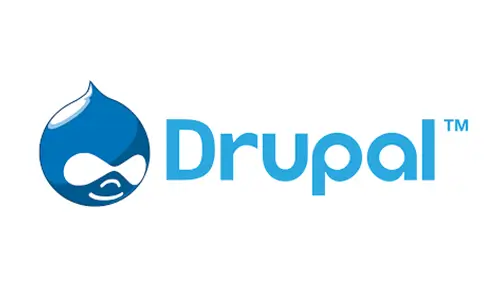Our involvement with Drupal goes back to Drupal 4.0 years. Our former Drupal development projects comprise eCommerce development, community web sites, corporate web sites, event management applications and intranet systems.
OdiTek is a professional Drupal website development and customization services organization. We specialize in custom Drupal CMS development according to your specific needs. Our Drupal web design services are cost effective, fast and search engine friendly. We put a dedicated Account Manager to hand-hold your requirements till the project delivery. Developers at OdiTek hold proficient level expertise in Drupal CMS customization. Our team is all ears for you to reach us anytime for any sort of requirement.
SERVICES OFFERINGS
We are dedicated to our end customer by providing the following services using Drupal.
- CMS Development
- Module Development
- Website Design
- Theming
- Extension Development
- Template Design & Development
- Apps Development
- CMS Customization
- eCommerce Development
- CMS Maintenance
OUR SKILLS MATRIX
Our web developers are experienced and proficient and hold several noteworthy Drupal module development, customization and maintenance projects to their credit. Since Drupal is an open source platform, we fully utilize its existing features as well as extend them to make your website platform completely in sync with your needs, ensuring you receive some cost benefits in addition to timely deliveries. Moreover, OdiTek offers day-and-night technical support and troubleshooting.
The technologies/skills in which OdiTek has gained expertise and is recognized for, are as below:
- PHP
- MYSQL
- Apache Webserver
- Ajax/Jquery
- XML/Webservices
OUR TOOLS AND TECHNIQUES:
We have been doing Drupal development as a team for over three years and have chosen our tools, refined our techniques, and perfected our secret sauce in making great Drupal websites.
At OdiTek our drupal experts are basically using the following tools.
Svn for version control
The ability to selectively save and revert your work is something you often wish for when cooking and find extremely useful when coding. we use SVN version control for all of our projects, big and small. This allows us to effectively manage projects with our multiple developers and allows us to integrate external developers into our client process. While we recognize there are other version control systems out there with more features (Bazaar, Git), we choose SVN because of its relative simplicity and familiarity to our developers, themers, and clients.
Trac for code history and bug tracking
To complement SVN with each site we roll out we also include a separate installation of Trac.This open source package allows us to see a timeline of our SVN commits and get visual diffs between revisions. This is helpful in auditing specific pieces of code (what happened and when) and provides a lot of assisstance in tracking down problems that might arise (if the module was broken on Friday, what changes were made to it on Wednesday and Thursday?) To manage our credentials between Trac instances we use our project management Drupal instance to control the HTTP authentication for Trac.
Drush
Beyond the module management, Drush is a venerable swiss army knife of Drupal functionality allowing a developer to log directly into the MySQL database with the credentials the Drupal installation uses (drush sql cli), runs cron (drush cron), run any pending database updates (drush updatedb) and much much more. It is really easy to extend Drush’s functionality and we have found this very helpful when doing extensive data imports and exports. All in all, the centeralization of all of this functionality to the command line (now not even a module!) is very powerful and indespensible to our development process.
DEVEL, DRUPAL FOR FIREBUG, CODER, ET AL: DRUPAL DEVELOPMENT MODULES
As a developer platform, there are many useful developer modules written for Drupal. Any given development project at Chapter Three will include several of them, but almost every project ends up having a few modules always installed. They include:
Devel Module – This is the defacto standard for a Drupal development module and includes essential functionality for generating test content, doing performance testing, examining SQL queries, developing forms, switching user accounts, identifying theme functions, dumping variables using the Krumo debug tool, and much more. It probably should be named the “Devel Suite” instead and we use it on every site.
Drupal for Firebug – This module and its corresponding Firefox extension provides an excellent Drupal developer experience for those already using Firebug on a daily basis.
Through a fair bit of XUL Magic, Drupal for Firebug hooks into the Firebug tabs and adds a new tab for “Drupal”. It slows you all of the nodes, users, views, and forms used in each page load and provides intuitive coloring to identify what items have been added, changed, or deleted. You can easily output custom debugging messages using the firep() function and have it show up, in order of execution, in the general messages. I wrote the module and the extension to help our development process at Chapter Three and now many people use it everyday (~100,000 downloads so far).
Coder – This module does more than just improve your code style, it also helps to enforce Drupal best practices on every line of code you write. We run this on much of our code and it helps to quickly find obvious security issues, identify PHP warnings, and enforce comment completeness. Starting soon all over our SVN commits will be run against coder module’s rules to gaurantee quality code structure.
There are many more developer modules – Deadwood for upgrading D5 to D6 modules, Masquerade for user testing, and hundreds more. We use these modules on a case by case basis as the project or client needs require.
Xdebug- The Xdebug debugging package helps to identify PHP errors by providing stack and function traces for our developers. As a complex application, Drupal often has errors that occur many layers deep in the Drupal architecture and being able to track back and pinpoint where the original problem occurs can be critical to efficently tracking dow a problem. The functionality Xdebug provides is specifically important when the technical error that PHP gives is in a common function – like node_load() – but the source of the problem is a function that happened several steps previous. The Xdebug backtrace is far more helpful and makes our development process more efficent.
SIMPLETEST AND SELENIUM – AUTOMATIC TESTING
Making sure that we deliver high quality products, free of critical bugs, is a complex task that requires a lot different processes. Part of our solution is to deploy automatic testing on both a functional level (via Simpletest) and a user experience level (via Selenium). A lot has been made of automatic testing going into Drupal 7 core (and for good reason), but much of that same functionality is available in Drupal 6’s Simpletest contributed module. We roll this module – along with custom tests we write on a case by case basis – into all of our large development projects and use the Simpletest framework to gaurentee critical functionality throughout each stage of our project. Part of our development strategy is identifying early the critical paths and functionality for each project and baking in the tests nessesary to support them. The Simpletest functionality does a good job at making sure critical PHP and SQL functionality is working at the code level.
Since a web application is more than just PHP and SQL, to ensure quality of the user experience side of things we use the Selenium testing package to make sure things work at the browser level. This testing helps to identify errors (like broken Javascript or forms hidden due to CSS issues) that are not detectable by a Simpletest framework alone. There are a number of ways to program Selenium tests, but the easiest is to use the Selenium Firefox Plugin to record a macro of user activity and then automatically play it back across many different browsers. This way we can regularly test each “user scenario” under different conditions to gaurentee critical site functionality.






